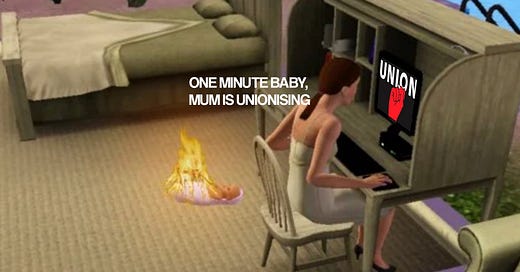Why won’t the fashion industry unionise?
Unions aren’t a service but a collective effort, and it’s up to creative workers in fashion to build that collective power.
*All names of fashion workers that feature in this article have been changed in order to protect the identity (and employment) of the worker.
Fashion, for all its apparent glitz and glamour, is an arduous career path to choose. A quick scan of 1 Granary’s recent publishing will tell you that. Freelancers are lonely and confused, industry-wide ageism is rife and, well, if you want to keep your job, don’t even think about having kids. Secure employment is becoming increasingly scarce, and budgets for freelance work are shrinking, particularly within fashion media, while long hours and subpar pay are often present in all sectors of the industry. Whether you’re working as a freelancer or on an employment contract, it usually feels like you have to show clients that you are ready and willing to bend over backwards for the job – and what that often means is either signing away or turning a blind eye to your legal rights as a worker.
It doesn’t have to be this way, though. Since 1871, trade unions have been legal in the UK – a right that was hard-won by workers in the 19th century. For those unfamiliar, a trade union is a group of workers who engage in a similar type of labour and negotiate with employers to bargain for better working conditions. Unions can also assist in dealing with grievances at work, provide legal and financial advice and organise industrial action, such as strikes. We wouldn’t have weekends without trade unions, or safety conditions, standardised working hours and, when employed, benefits like sick pay and paid holiday. So why, if everything is so shit, are creative fashion workers in the UK not unionising?




